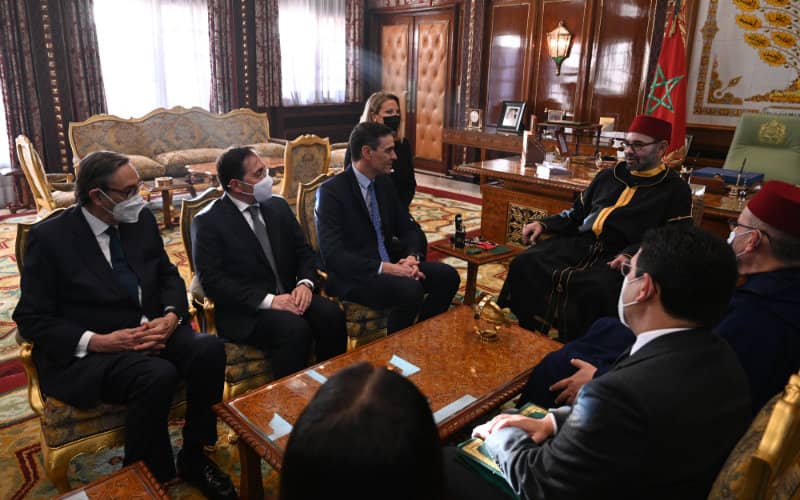Spain-Morocco Summit to Address Key Border and Territorial Disputes

The opening of the commercial customs of Ceuta and Melilla, the delimitation of territorial waters or the control of the airspace of the Sahara are among the major points of friction between Spain and Morocco that will certainly be the subject of discussions during the High-Level Meeting scheduled in Rabat on February 1 and 2.
Relations between Spain and Morocco in 2023 will be marked by these persistent points of friction, despite Pedro Sanchez’s decision to support the Moroccan autonomy plan for the Sahara. Nearly ten months after this historic change in Spain’s position on this issue, which put an end to the long diplomatic crisis opened since April 2021 by the reception of Brahim Ghali in a hospital in Logroño, it is the status quo.
In short, Sanchez’s success for the moment will have been to succeed in calming tensions with Morocco. But looking closely, counterterrorism and migration cooperation have also been strengthened, which has made it possible to dismantle jihadist groups and reduce migration flows, even if the pressure remains very strong on the borders of Ceuta, Melilla and the Canary Islands. In recent months, Spain has also transported gas to Morocco via the Maghreb-Europe pipeline in the reverse direction, recalls Nius Diario.
At this twelfth session of the High-Level Meeting to be held in February in Rabat after several postponements - the last one having taken place in Madrid in June 2015 -, the reopening of the commercial customs of Melilla and the opening of a new customs in Ceuta will undoubtedly be discussed with a view to reciprocity of goods traffic, Morocco having prohibited since the reopening of the borders on May 17 the entry of products on its territory from the two autonomous cities.
The two countries should also update the Spanish-Moroccan Friendship Treaty and coordinate on the delimitation of maritime spaces on the Atlantic coast and the Canary Islands. Since the normalization of relations, the bilateral working group has met several times between June and October to exchange on the subject. The management of the airspace of the Sahara, currently shared by the control centers of Rabat and Gran Canaria, will certainly also be put on the table during these meetings.
Related Articles
-

Balearia’s Tarifa-Tanger Route Plagues Passengers: Smoke, Delays, and Contract Concerns Spark Outcry
15 August 2025
-

Moroccan Exodus: Spanish Beaches Lure Vacationers Fleeing Coastal Chaos at Home
13 August 2025
-

Moroccan Diaspora Surge: Over 1.6 Million Cross Border Amid Travel Chaos
13 August 2025
-

Ferry Chaos: Scorching Delays Strand Hundreds at Tarifa-Tangier Crossing
12 August 2025
-

From Migrant Patera to Canary Islands Champion: Moroccan Runner’s Inspiring 400m Triumph
6 August 2025